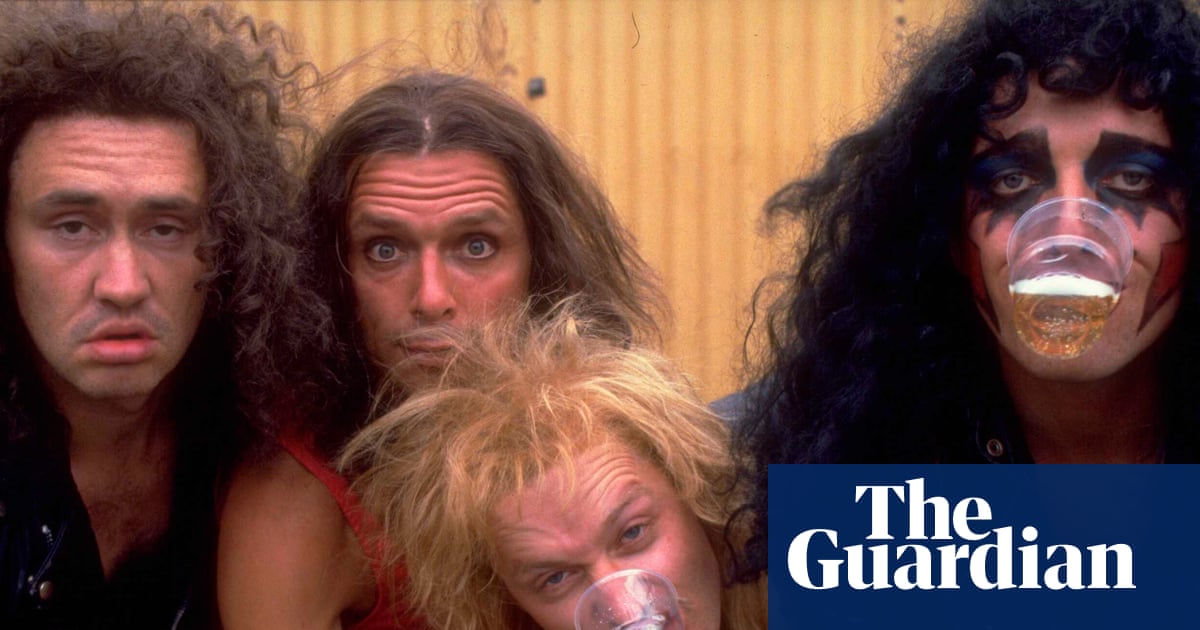This summer, the Edinburgh Fringe will commemorate The Comic Strip Presents…, a landmark series in British comedy, through a series of screenings and Q&A sessions with its creator and driving force, Peter Richardson. In 1980, Richardson founded the legendary Comic Strip club, and two years later, he brought its stable of stars—including Rik Mayall, Alexei Sayle, and French and Saunders—to television, effectively introducing alternative comedy to the mainstream.
Despite its historical significance, the celebration is a modest affair. “When I started showing these films about a year ago, we didn’t have the money to advertise,” Richardson explains. “We’d arrive at theatres with about 30 people who had somehow read our minds. And 30 people in a 300-seat cinema can be hard work.”
The Comic Strip Presents… originally ran on Channel 4 from 1982 to 1988 before moving to the BBC and later returning for specials, with the most recent in 2016. Yet, it never achieved the household-name status of contemporaries like The Young Ones, which featured many of the same performers. Richardson admits the show’s format was a challenge for television, which thrives on repetition. “It wasn’t good television because it wasn’t repetitive,” he says. “Television is about repeating a formula and people getting to know it well.”
The series was not a traditional sitcom but a tonally diverse anthology of standalone films, united only by a shared sensibility and its core cast. Star Rik Mayall once suggested “Interesting Films” would have been a more fitting title. “I told Channel 4, ‘These performers are so good they don’t need to be stuck playing one-dimensional characters,'” Richardson recalls. “As it’s gone on, it’s become a collection of very memorable one-off moments.”
The troupe, which also included Adrian Edmondson, Nigel Planer, and Richardson himself, alongside a rotating cast featuring Robbie Coltrane and Keith Allen, first ignited the comedy scene at The Comic Strip club in Soho’s Raymond Revuebar. From 1980 to 1981, it was the most sought-after comedy night in London, attracting celebrities like Dustin Hoffman, Bianca Jagger, and a determined Robin Williams, who tried to buy the club to secure a longer set. The buzz was undeniable; as Alexei Sayle later wrote, bouncers separated patrons by smell: “If they reeked of aftershave they were sent to the strip show; if they smelled of beer they came to us.”
When the newly launched Channel 4 sought groundbreaking content, it gave Richardson carte blanche. His first film, Five Go Mad in Dorset, aired on the channel’s opening night, creating a front-page stir with its satire of Enid Blyton’s worldview. However, Richardson says the episode will not be screened at the Fringe. “Taking the piss out of racism and sexism [in that way] is long gone,” he notes. “It’s not a funny issue like it was when we did it in the 80s.”
Now 73, Richardson has been re-editing the films for the retrospective, believing that “30 years later they need some adjustment. Because things go faster now.” The Western spoof A Fistful of Travellers’ Cheques and the award-winning The Strike—a satire of the miners’ strike starring Richardson as Al Pacino playing Arthur Scargill—have both been trimmed. “I could do Pacino much better now,” he laughs, slipping into a convincing Italian-American accent.
Richardson’s career also includes the TV hit Stella Street and cinematic releases like The Supergrass (1985) and Eat the Rich (1987). Later specials, such as The Hunt for Tony Blair (2011), continued the show’s legacy of sharp political satire. He remains modest about his body of work. “I always thought we were the new Ealing comedies,” he says. “Ealing made about 150 films over 20 years, of which about 15 are remembered. So our strike rate isn’t too bad.”
While some episodes, like the heavy metal mockumentary Bad News Tour, are deeply cherished by fans, Richardson is at peace with the series’ under-appreciated status. He is simply excited to share the remastered films with a new generation in a communal setting. “You don’t often get to share comedy television with an audience, and it changes the whole experience,” he says. “It’s fantastic that something we created 30 or 40 years ago is still creating laughter. I love it.”





